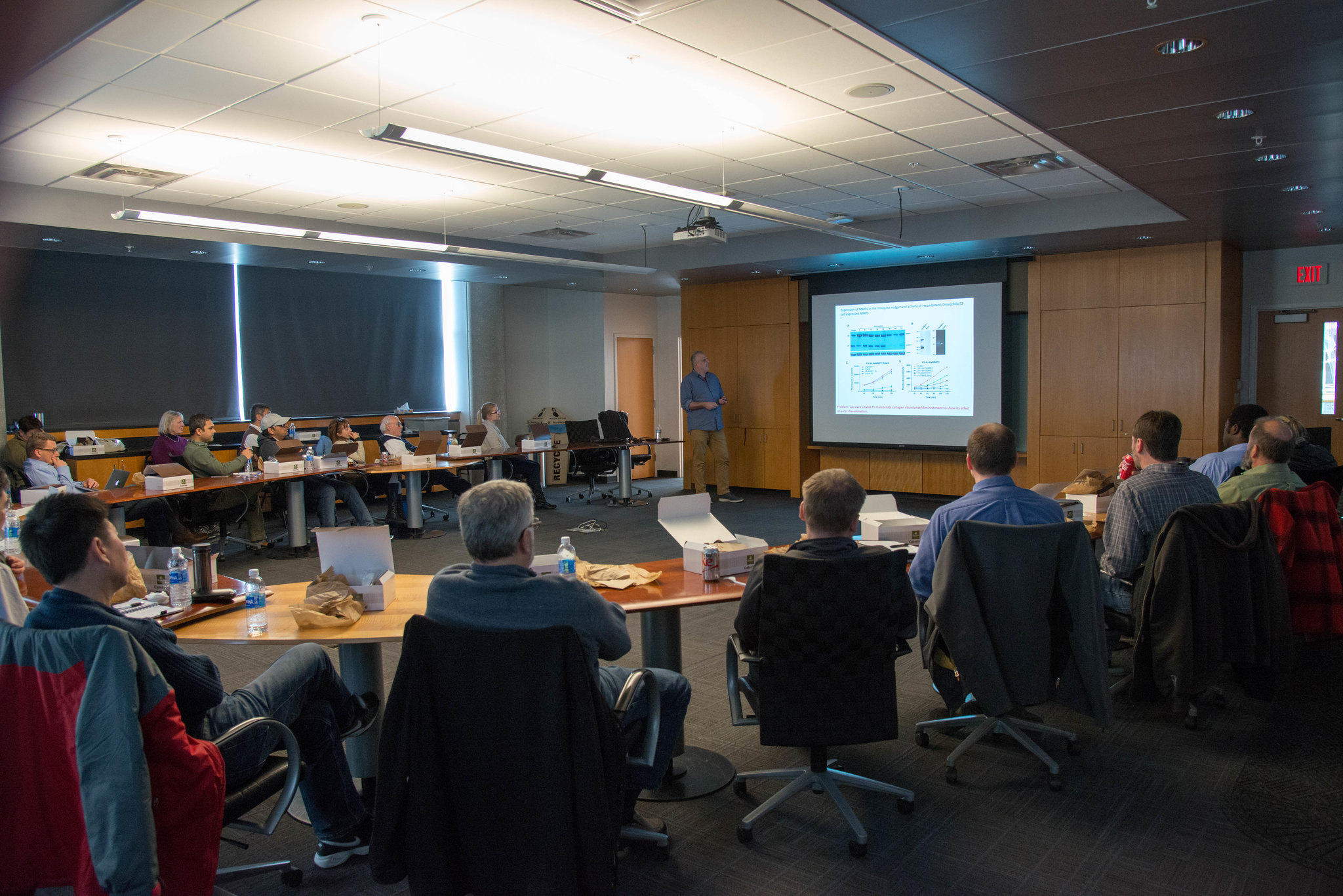Bond LSC connects scientists in “hot topic” research

By Samantha Kummerer | Bond LSC
An immunologist, a plant biologist and a biochemist enter a room.
No, that’s not the start of a geeky science joke, but rather is the start of a conversation meant to spur ideas.
As a group of scientists crowd a conference room in the Bond Life Sciences Center in December, they aim to share ideas about their diverse research projects and disciplines.
Today they set about to learn about viruses in mosquitoes from Alexander Franz of MU’s Department of Veterinary Pathobiology.
“The take-home message is that mosquitoes are not just flying syringes or something,” said Franz, explaining the basic science behind his studies. “That is the very wrong idea. This is a very intricate relationship between the virus and the mosquito.”
He spoke to the scientists in attendance about the Chikungunya virus that is spread by mosquitoes to humans throughout the world and currently has no vaccine. Franz’ work examines the genome of the virus and the virus’ expansion into secondary tissues.
The scientists are part of a research network focused on Host-Pathogen relationships. This overarching topic unifies researchers from across campus who share this commonality. The hope is to spark shared projects between scientists that often find it difficult to make connections outside of their discipline.
This group is one of three hot topic areas Bond LSC is currently targeting to get the conversation started. Researchers across campus joined this network two months ago along with groups interested in metabolomics and cancer biology.
During each meeting, one researcher volunteers to present their work to the group and other members are able to jump in, ask questions or offer advice to bounce ideas off one another.
Bond LSC interim director Walter Gassmann kick started the meetings, recognizing both the need for collaborative research and the central location of the Bond LSC building.
“The increasing complexity and sophistication of basic research leads to increased specialization. Yet, fundamental questions can only be tackled by getting at them from different directions,” Gassmann said.
The LSC has always encouraged collaborative discussions for scientists within the center, but Gassmann decided to expand these to include faculty from all buildings on campus as well as include students in the conversation.
“When I became the interim director, I felt Bond LSC could really function as a catalyst for a wider research community on campus. This meant advertising the “hot topics” meetings across campus,” Gassmann said.
Bond LSC investigator Michael Petris said previously multiple small cancer research groups met, but these meetings expand the group and centralize everyone.
Petris is one of the leaders of the cancer biology group and said the effect of these talks is already showing.
After Petris gave the first talk for the cancer biology group, he was invited to exchange techniques, ideas and cell lines with another researcher who was in attendance.
“The discussions that go on in these sort of groups are, for me at least, opening my eyes to the broader spectrum of cancer biology that goes beyond my wheelhouse, my sort of understanding from a narrow perspective,” Petris said.
One way this is occurring is due to the inclusion of clinicians who deal with patients regularly. Petris explained their perspective on problems in cancer and biology may be something the cancer biologist never even thought of before.
The center supports these talks with the aim of sparking collaborative research, publications, and grants in the future.
A full schedule of spring 2018 hot topic meetings will be released in January.

